Engaged Citizenship: Graduate students involved with community service through the Shaw Center
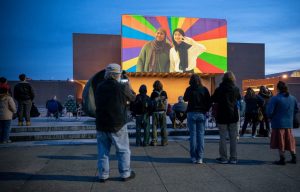 Graduate-level learning, research and creative activities take place in classrooms, labs and studios on the Syracuse University campus, but they also occur throughout the community as graduate students work with local residents of all ages and backgrounds through partnerships with a variety of local organizations.
Graduate-level learning, research and creative activities take place in classrooms, labs and studios on the Syracuse University campus, but they also occur throughout the community as graduate students work with local residents of all ages and backgrounds through partnerships with a variety of local organizations.
9 Faculty Honored for Excellence in Graduate Education
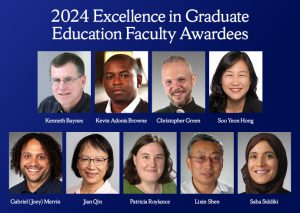 Nine faculty members received the student-driven award, which acknowledges faculty who have had a significant impact and positive influence on graduate education because of their superior graduate-level teaching, dedication to departmental and community presence and excellence in research and creative activities.
Nine faculty members received the student-driven award, which acknowledges faculty who have had a significant impact and positive influence on graduate education because of their superior graduate-level teaching, dedication to departmental and community presence and excellence in research and creative activities.
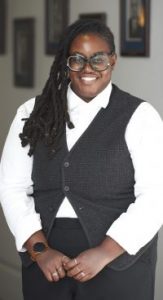 Lender Center Postdoctoral Fellow Examines the Impact of Gentrification and Displacement in Western and Central New York
Lender Center Postdoctoral Fellow Examines the Impact of Gentrification and Displacement in Western and Central New York
Growing up in Rochester and attending the University of Buffalo, Lender Center for Social Justice Postdoctoral Fellow J Coley saw firsthand how gentrification and displacement impacted those communities.
Annual Three-Minute Thesis Competition Provides Research Capsule Talks
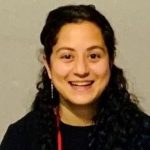 Creating an elevator pitch from information gleaned through years of specialized research takes clear thinking, precise wording and a flair for presenting to an audience. Just ask the participants of this year’s Three-Minute Thesis (3MT) competition. Ten graduate and doctoral students took part in the contest’s final round last month.
Creating an elevator pitch from information gleaned through years of specialized research takes clear thinking, precise wording and a flair for presenting to an audience. Just ask the participants of this year’s Three-Minute Thesis (3MT) competition. Ten graduate and doctoral students took part in the contest’s final round last month.
Graduate School Marshal Takes Community-Engaged Approach to Scholarship
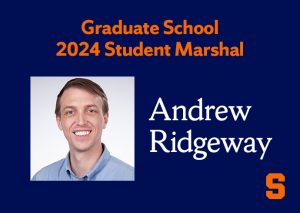
Graduate School marshal Andrew Ridgeway, a doctoral student and graduate teaching assistant in the College of Arts and Sciences’ composition and cultural rhetoric program (CCR), is no stranger to academic honors. In 2022, he won the prestigious Mary Hatch Marshall Essay Award and was one of nine graduate students to receive the Graduate Dean’s Award for Excellence in Research and Creative Work.
OTA Award
Read More
Graduate School Summer Funding Competition Awards Announced
Seventy-one scholars are the recipients of dissertation and pre-dissertation fellowship awards through The Graduate School’s Summer Funding Competition. The $4,500 awards are given annually to a select group of outstanding doctoral students to support progress to degree and dissertation completion. The awards are part of an expansion of funding and benefits programs announced by the Office of the Provost last spring.
Teaching Mentor Selection for 2024-25
A rigorous application process culminates in the selection of 32 outstanding individuals to be awarded a teaching mentor position.
Generosity of Soldiers Inspired Benetta Dousuah G’25 to Enlist in the Army
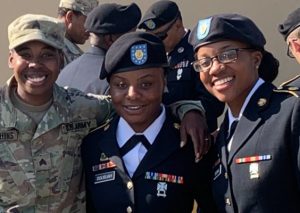 U.S. Army veteran Benetta Dousuah G’25, currently a graduate student in the Falk College of Sport and Human Dynamics, vividly recalls her family’s escape from Liberia during the back-to-back civil wars that ravaged the nation between 1989 and 2003. Initially seeking refuge in a camp in Ghana, it took almost a decade before they secured the opportunity to immigrate to the United States.
U.S. Army veteran Benetta Dousuah G’25, currently a graduate student in the Falk College of Sport and Human Dynamics, vividly recalls her family’s escape from Liberia during the back-to-back civil wars that ravaged the nation between 1989 and 2003. Initially seeking refuge in a camp in Ghana, it took almost a decade before they secured the opportunity to immigrate to the United States.
A&S graduate student Brianna Cardillo develops an algorithm in her computational forensics course to promote books by marginalized authors
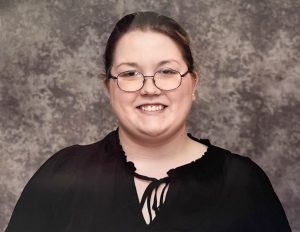 While fingerprint powder and microscopes are very important tools in forensics, machine learning is becoming one of the fastest emerging technologies in the field. This involves the use of algorithms and computing to perform efficient and effective investigations by analyzing large and complex sets of data. The College of Arts and Sciences’ Forensic and National Security Sciences Institute offers customized courses designed to equip students with the skills to examine these problems using computational methods and algorithms.
While fingerprint powder and microscopes are very important tools in forensics, machine learning is becoming one of the fastest emerging technologies in the field. This involves the use of algorithms and computing to perform efficient and effective investigations by analyzing large and complex sets of data. The College of Arts and Sciences’ Forensic and National Security Sciences Institute offers customized courses designed to equip students with the skills to examine these problems using computational methods and algorithms.
Victor Sholl to Receive 2024 Mary Hatch Marshall Essay Award
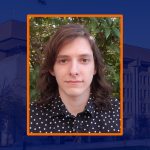 Victor Sholl, a doctoral candidate in the Department of Philosophy in the College of Arts and Sciences (A&S), was selected as the 2024 winner of the prestigious Mary Hatch Marshall Essay Award for his piece titled “Writing the story of the world: the case for World Narrativism.”
Victor Sholl, a doctoral candidate in the Department of Philosophy in the College of Arts and Sciences (A&S), was selected as the 2024 winner of the prestigious Mary Hatch Marshall Essay Award for his piece titled “Writing the story of the world: the case for World Narrativism.”
 Stay up-to-date on feature stories, news items and announcements from the Graduate School.
Stay up-to-date on feature stories, news items and announcements from the Graduate School.
![]() Learn more about information sessions, networking opportunities, social gatherings and other events for graduate students.
Learn more about information sessions, networking opportunities, social gatherings and other events for graduate students.
Join Syracuse University’s GradCast to learn about professional and career development, hear from alumni and find out about events.

